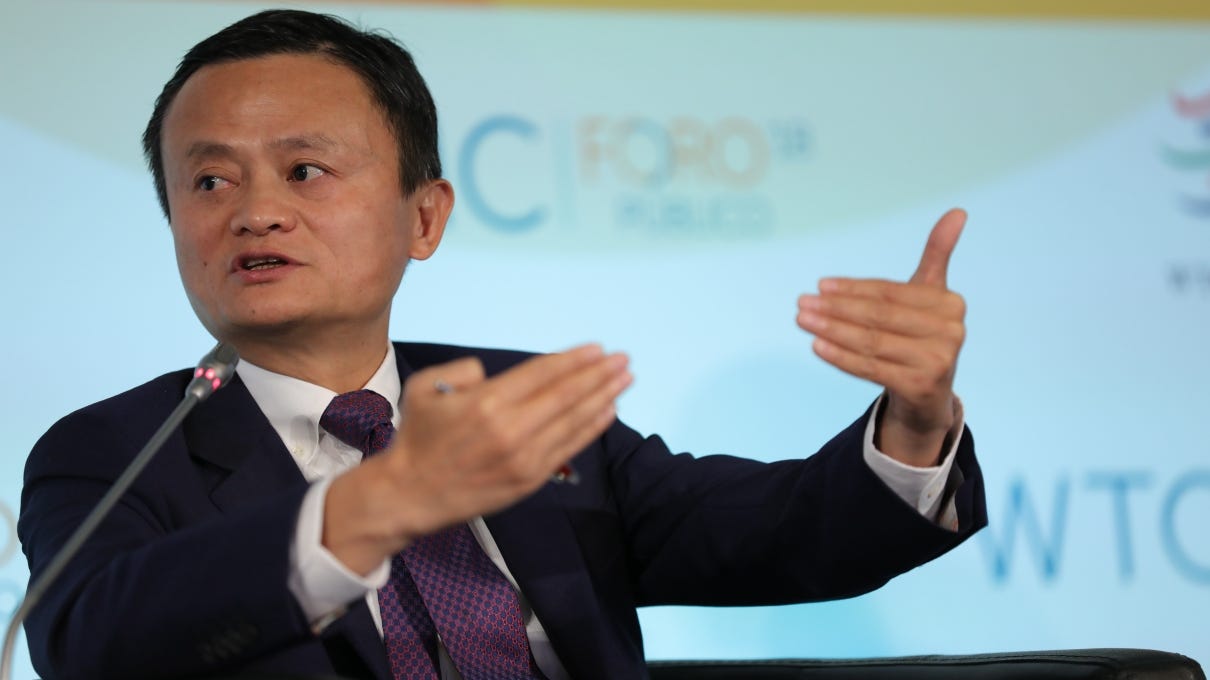Tiger is hunting; Amazon is investing; IPOs are coming
Asia Tech Review: 20 April 2021
Welcome back,
We are back after a mini hiatus, and boy-o-boy is there a lot of news this week.
Tl;dr there’s a whole lot of money sloshing about, especially for growth companies in India where Tiger Global and SoftBank are dishing out $100Ms. Meanwhile, the older Asia tech companies are hitting the public markets: Grab just confirm it will head to the US in the largest SPAC merger to date, but ByteDance, Didi Chuxing, Traveloka and Tokopedia-Gojek are all on the same path, too.
I can’t not mention the cracking stories we’ve published at The Ken, I won’t them all but just from last week: Malaysia’s next unicorn; Jokowi shouldn’t blame e-commerce; India’s lost year of school; why is chat commerce popular in SEA.)
If you’re curious, you can ping me for a 30-day access code. All of our paying readers have codes they can share with friends to let new readers to sample our work.
Things are getting worse across most of Asia, so stay safe from Covid whereever you are—and see you next week,
Jon
India
Expect to see more deal madness now Tiger Global is putting its focus back on India from its newest $6.7B fund
The firm led a $100M Series D round for social commerce startup DealShare, having backed Gupshop last week via a $100M deal that turned the startup into a unicorn and put money into ShareChat, which raised $502M at a valuation of over $2B
TechCrunch says a lot more is coming:
It is currently in advanced stages to back epharmacy firm PharmEasy, which also turned into a unicorn last week, fintech firm ClearTax (at possibly $1 billion valuation), crypto exchange CoinSwitch, insurer Plum, B2B marketplace Moglix (at over $1 billion valuation), social firms Kutumb and Koo (at over $100 million valuation, per the CapTable), healthtech firm Pristyn Care, and B2B e-commerce Bzaar, and agritech Reshamandi, according to people familiar with the matter. (Some deals haven’t closed yet so the terms could change.)
No other investment firm has written checks of this magnitude to Indian firms this year — or ever — and the frenzy has reached a point where dozens of startup founders are scrambling to get an intro with Tiger Global partners.
Speaking of things you wouldn’t expect: Amazon announced a $250M investment fund for India—Amazon Smbhav. It’s focused on SMEs and MSMEs who are digitising in India, with healthcare and agriculture also said to be areas of investment.
For the first deal, Amazon led a $10M round for M1xchange, a startup that helps MSMEs get receivables finance—i.e. loans and advances based on money owed by outstanding invoices
All the while, half a million traders and merchants are protesting against Amazon’s India business
Flipkart, meanwhile, is getting a lower-priced bargain—it’s poised to pick up travel booking portal Cleartrip for just $40M. The 15yo business raised around $80M in total and was once valued at $300M. (Cleatrip had been an Amazon partner.)
Back to big deals from big firms: SoftBank is being linked with a $500M investment in Swiggy. The deal could value the delivery firm at $5.5B, according to TechCrunch
SoftBank is also reportedly on the cusp of leading a $250M round for edtech startup Zeta, a deal that would value it at over $1B for the first time
Razorpay reached a $1B valuation last October, and now it has closed a $160M Series E that values its payment business at $3B—it plans to use the money to expand into Southeast Asia
Facebook allowed a network of fake accounts to artificially inflate the popularity of an MP from India’s ruling party for months after being alerted to the problem.
Wistron, the Taiwanese firm that’s Apple’s partner in India, has revamped the structure of its India business following violent clashes at one of its plants last year. Its India head and operations head are reportedly out, as the firm looks to show investors that it has moved on from the incidents, which saw cars and property torched as workers protested payment delays and excessive deductions.
As for India listings: fantasy sports platform Dream11 is said to be weighing a US listing that raises $1.5B at a valuation of around $6B—it could reportedly take the SPAC route, too
Southeast Asia
Grab’s public listing is confirmed—it’ll take the SPAC route alongside US investment firm Altara. The deal is the largest SPAC ever. That puts Grab and Southeast Asia on the map, and sets a precedent for others from Southeast Asia to head to public markets, too.
It’s been highly speculated for some time but the basics will mean:
Grab will raise $4.5B
Grab is valued at around $40B, $39.6B to be precise
Grab will be listed on the Nasdaq
CEO Anthony Tan will hold a 60.4% voting majority despite equity of just 2.6%
Grab released some top line numbers for all to see.
Interestingly, Grab is being linked with plans to also list in Singapore—the boom in IPOs is mostly playing out on US exchanges but local secondaries could benefit Singapore and Indonesia
Meanwhile in a far lower key merger, Fave got acquired by India’s Pine Labs. The deal was on the cards last summer when the payment firm invested in Fave. (Indeed, my colleague Kay called it last year.) The deal is worth $45M, investors are getting paid in cash and its equity for employees. Sequoia is an investor in both and you’d suspect involved in encouraging this union.
Following just behind Grab is Goto (“Go To”), that’s the name that Gojek and Tokopedia have reportedly decided to call themselves once they complete their merger. The deal to make the $18B newco could close as soon as this month, after which the next job is to reach the public markets—Goto plans to list in the US and Indonesia, but exact plans and timeframes aren’t yet decided
Traveloka is also in hot pursuit with news reports claiming it is set to link up with Peter Thiel-fronted SPAC Bridgetown holdings, which will take the travel booking firm public. It's expected to raise $500M and be valued around $5B. Yet another stock giving retail investors exposure to Southeast Asia’s digital economy—now you can see why Traveloka has been telling press it is profitable and building its fintech story
A big report on Myanmar concludes that the “military coup has pushed its fledgling digital economy to the brink of collapse.” “Amid internet blackouts, economic isolation, and massive strikes, a decade of development is unwinding.” That goes some way to explaining why young Burmese activists have turned to pirate radio to broadcast translated news stories and broadcast information that opposes the coup.
Bukalapak isn’t on the IPO trail—officially—yet, but it just pulled in what looks like its last private round: a $234M investment led by Microsoft, Singapore’s GIC and local media giant Emtek
Logistics startup Shipper shipped in a $63M Series B led by DST Global and Sequoia—big names there. The start has raised $88M so far, and it is an early Y Combinator alum from Southeast Asia.
Philippines-based fintech startup Plentina raised a $2.2M seed round(PH deals are getting bigger) for its buy-now-pay-later service
Sticking with the Philippines, ISPs will soon be able to block sites deemed to pirate content within two hours or less following a new system agreed with the government
An electric bike startup from Vietnam that’s (wonderfully) named Dat Bike just raised $2.6M
It looks like Korea’s Coupang, which just went public in the US, is slowly making moves in Southeast Asia. It’s hiring for roles in Singapore. Coupang raised over $4.5B from its IPO, and it has resisted expanding outside of Korea for now, instead honing its delivery network which specialises in same-day
China
Ant Group is now reportedly exploring ways for Jack Ma to sell his holdings and give up his voting power in a move to appease regulators and the Chinese government. Ant has already conceded with plans to restructure its business so it is subject to regulations that cover governing banks—it’ll be overseen by China’s central bank. (Even Jack Ma’s academy has had to hit the pause button.)
This is right after Alibaba got slammed with a $2.8B antitrust fine from the government—the company has had to begrudgingly accept it and publicly pledge to do better
On very related terms, nearly three dozen of China’s largest technology companies made public pledges to comply with the country’s anti-monopoly laws… because what else can they do?! The government’s regulatory arm is reportedly staffing up its ranks in preparation to crack down on other internet giants on anti monopolistic terms
ByteDance is reportedly seeing crazy growth as it gears up for an IPO:
An internal memo leaked showing TikTok’s owner aims to grow advertising sales in China 42% and triple the size of its e-commerce business this year.
The internet titan is seeking to increase ad revenue for its China-based businesses including Douyin and Toutiao to 260 billion yuan ($39.8 billion) this year from 183 billion yuan in 2020, according to the memo seen by Bloomberg News. The target excludes short-video sensation TikTok. It’s also aiming for e-commerce gross merchandise value of as much as 600 billion yuan, up from 170 billion yuan last year.
The ByteDance roadshow is said to have already kicked off. The exact amount being raised isn’t clear, but the company plans to list in either the US and Hong Kong and it will reportedly not include TikTok or other overseas assets in the float. Presumably that’s for another listing—it’s also logical to delink Chinese and overseas assets for political, regulatory and (many) other reasons
Didi also has eyes on a listing. The ride-hailing company is said to have engaged Goldman and Morgan Stanley for a “mega” US IPO that might value it as high as $100B, and see it raise $10B. That would make it China’s largest US IPO since… Alibaba.
Didi has already reportedly secured $1.5B in debt funding, and stories of its past are creeping out as happens when companies start to limber up for public life. For example, The Information shed light on how Didi aborted a planned acquisition of US-based self-driving car company Aurora Innovation after US government officials expressed concern at such a deal
One company that may not be about to follow those footsteps is lending platform Waterdrop, which is backed by Tencent—it is apparently getting pushback on a plan to list in the US which is viewed as risky
Huawei plans to plonk $1B into automotive R&D, self-driving and electric vehicles. As part of that it just unveiled a range of systems to let car makers build using its tech:
The system consists of a computing system, 4D imaging radar, an autonomous driving platform and intelligent thermal management. It runs on Huawei’s Harmony OS and lidar chip, and has 5G connectivity.
Arm’s ongoing battle with its China CEO, who it tried to force out and sued, could derail its sale to Nvidia
South Korea
Kakao Entertainment, a ‘web toons’ company connected to messaging firm Kakao, could go public in the US following Coupang’s lead
But first of all watch out for an IPO from Krafton, the studio behind hit game PUBG just applied for preliminary approval to go public in Korea. It will be valued just shy of $18B, according to reports.
Speaking of Coupang, one of its earliest investors has this paywalled essay on its development from a group-buying site into modern day e-commerce titan
SoftBank took an early bet on Coupang founder Bom Kim, and the IPO has given it some $30 billion in profit on paper
Japan
Netstars, a QR code payment gateway provider, raised $60M from KKR, SIG and others
Pakistan
Pakistan temporarily blocked social media:
The move comes as Pakistan looks to crack down against a violent terrorist group and prevent troublemakers from disrupting Friday prayer congregations following days of violent protests.
Earlier this week Pakistan banned the Islamist group Tehrik-i-Labaik Pakistan after arresting its leader, which prompted protests, according to local media reports.
You just finished reading Asia Tech Review, the weekly newsletter for keeping up with the tech industry across Asia.
If someone sent this to you, you can sign up for free at Asiatechreview.com
You should also check out The Ken—we’re an independent media outlet that publishes deeply-reported and analytical business stories from India and Southeast Asia




